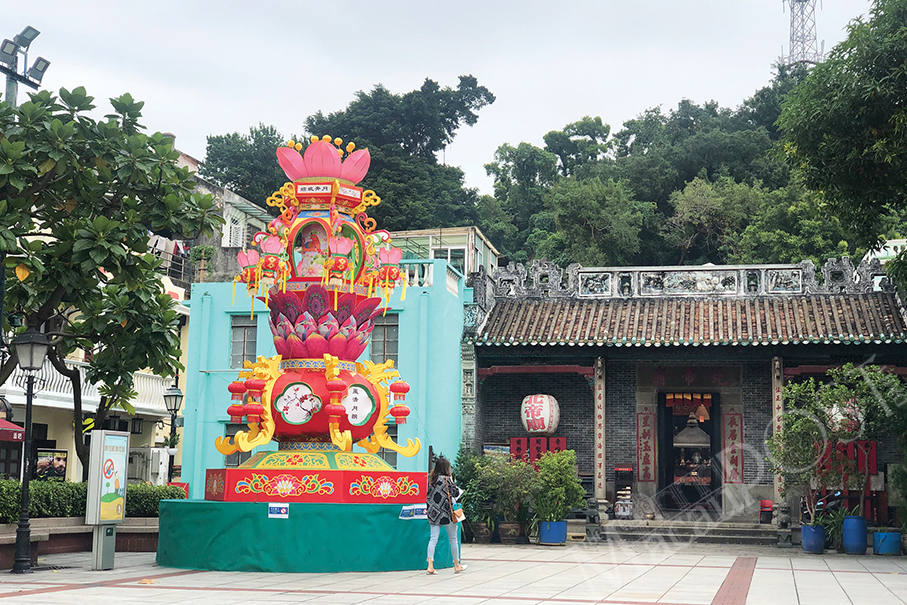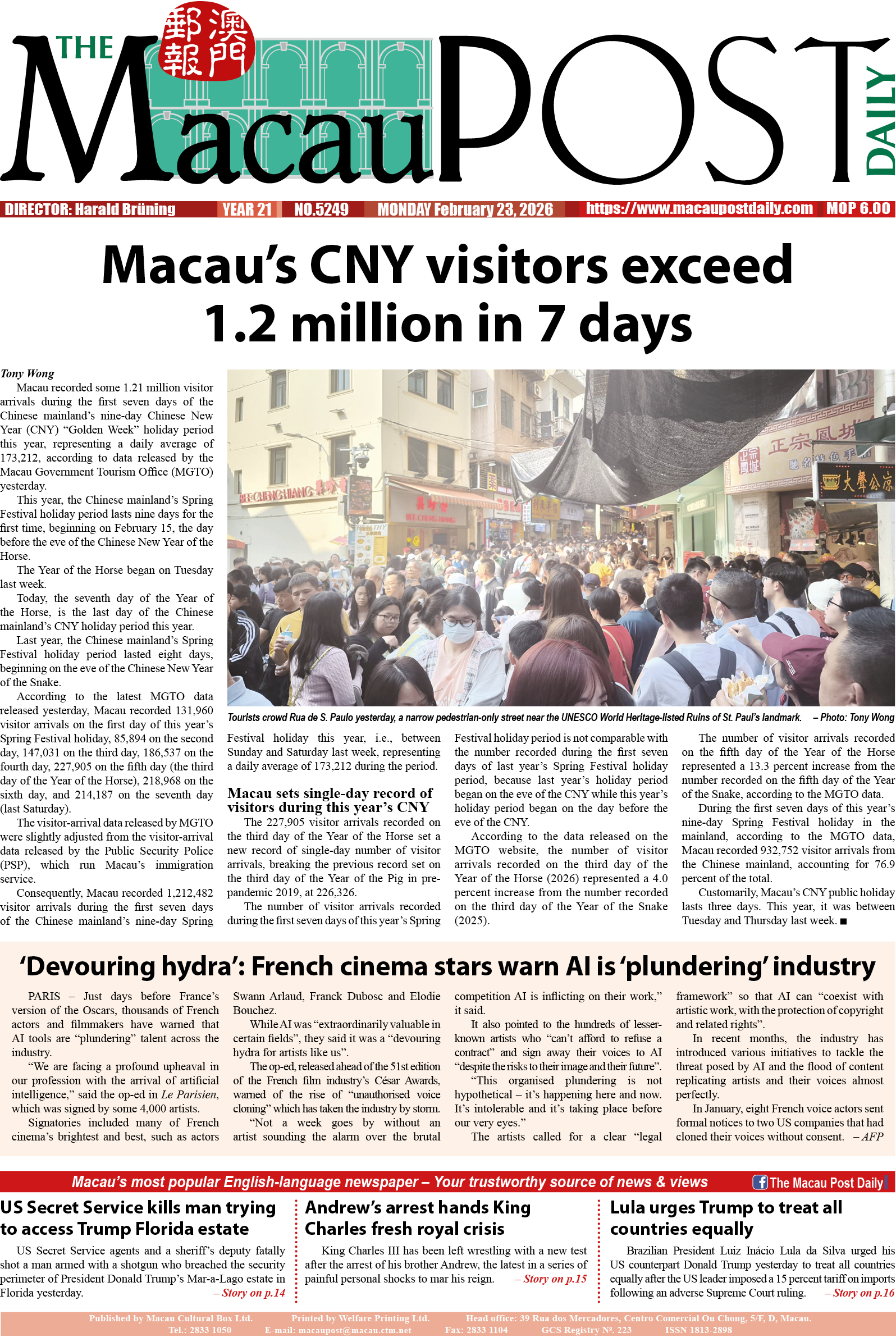A total of 5,521 voters representing over 500 associations elected 344 members of the 400-member Chief Executive Election Committee from among the 348 candidates yesterday – just four more than the number of seats up for grabs.
Addressing a press briefing at the Public Administration Building on Rua do Campo last night, Chief Executive Electoral Affairs Commission (CAECE) President Song Man Lei said that the voter turnout of 88.12 percent in yesterday’s election was even higher than the 87.20 percent five years ago, despite the fact that the total number of registered voters for yesterday’s election was higher than the one in 2019.
A total of 6,265 voters had registered for yesterday’s secret ballot, while the election in 2019 had 5,735 registered voters, 5,001 of whom cast their ballots at that time.
Song said that according to the initial results of the election, 96.83 percent of the votes cast (5,346) were valid, with 18 ballot papers left blank (0.33 percent) and 157 deemed invalid (2.84 percent).
Song noted that the percentages of blank votes and invalid votes in relation to the votes cast this time were both lower than the ones in 2019.
According to Song, this time’s voter turnout was the highest compared to all the previous Chief Executive Election Committee elections.
The official finally confirmed results and data of yesterday’s election will be announced today.
Yesterday’s voting took place from 9 a.m. to 6 p.m. at three polling locations, namely the Macao Polytechnic University’s (MPU) Multi-Sport Pavilion in Zape, the nearby Macau Forum complex, and the Luso-Chinese Vocational and Technical School in Areia Preta district.
The chief executive election is slated to be held in mid-October. Current Chief Executive Ho Iat Seng is widely expected to be the only candidate. Informed sources have told the Post that he will announce his re-election candidacy for his second and constitutionally final five-year consecutive term “quite soon”.
The election of the chief executive of the Macau Special Administrative Region (MSAR) is held every five years. The head of the MSAR is elected by the 400-member Chief Executive Election Committee.
According to the Chief Executive Election Law, a total of 344 out of the Chief Executive Election Committee’s 400 members are elected by registered association representatives, i.e., yesterday’s election, while the other 56 members are chosen by a raft of other methods.
The 400-member, four-sector Chief Executive Election Committee comprises 120 members representing the first sector (comprising the industrial, commercial and financial segments), 115 members representing the second sector (comprising the cultural, educational, professional, and sports segments), 115 members representing the third sector (comprising the labour, social services, and religious segments), and 50 members representing the fourth sector, which comprises: 1) 22 representatives chosen from among the city’s lawmakers; 2) the 12 local deputies to the National People’s Congress (NPC); 3) 14 representatives chosen from among local deputies to the National Committee of the Chinese People’s Political Consultative Conference (CPPCC); and 4) two representatives chosen from among members of the city’s municipal organs (Municipal Affairs Bureau/IAM).
Macau’s legislature has 33 members. There are 12 Macau deputies to the NPC, while there are 38 Macau members of the CPPCC National Committee.
The 344 seats up for grabs, i.e., those chosen by yesterday’s election, comprise 120 seats from the first sector (comprising the industrial, commercial and financial segments), 26 from the cultural segment, 29 from the educational segment, 43 from the professional segment, 17 from the sports segment, 59 from the labour segment, and 50 from the social services segment.
Concerning the remaining 56 members of the committee – whose seats were not up for grabs in yesterday’s Chief Executive Election Committee election, the 12 local NPC deputies are ex officio members. The 22 representatives from the city’s lawmakers, the 14 representatives from the Macau members of the CPPCC National Committee, and the two representatives of the members of the city’s municipal organs, are chosen by their respective peers, according to the Chief Executive Election Law. The six members from the religious segment on the committee are chosen by the city’s main religions – Buddhism, Taoism, Catholicism, and Protestantism.
Concerning the 56 members, Song said that all their respective segments had submitted their chosen members to her commission.
348 candidates for 344 seats
There was a total of 348 candidates competing for the 344 seats up for grabs in yesterday’s Chief Executive Election Committee election. The educational and labour segments were the only ones where the number of seats available and the number of candidates were not identical, while the number of seats available and the number of candidates were the same in all other segments, namely the first sector (comprising the industrial, commercial and financial segments), the cultural segment, the professional segment, the sports segment, and the social services segment.
For yesterday’s election, the educational segment had 31 candidates, two more candidates than seats at stake, while the labour segment had 61 candidates, also two more candidates than the number of seats available.
A total of 6,265 voters selected by 576 associations from the first sector and six segments were eligible to vote in yesterday’s Chief Executive Election Committee election. As 5,521 of them cast their ballots yesterday, the voter turnout was 88.12 percent.
Of the first sector and the six segments whose seats were up for grabs in yesterday’s election, according to last night’s CAECE announcements, the labour segment recorded the highest turnout, reaching 96.85 percent, while the lowest was the sports segment at 73.44 percent. The turnout was 92.08 percent in the first sector, 91.77 in the educational segment, 91.18 percent in the social services segment, 87.27 percent in the professional segment, and 74.67 percent in the cultural segment.
According to the initial results of yesterday’s election released by the Chief Executive Electoral Affairs Commission last night, the two candidates for the educational segment who were not elected – receiving the smallest number of votes – were Chan Chon San (58 votes) and Chio Kuok Keong (52 votes), while the two candidates for the labour segment who were not elected were Ng Iok Lon (257 votes) and Lei Chin Tou (237 votes).
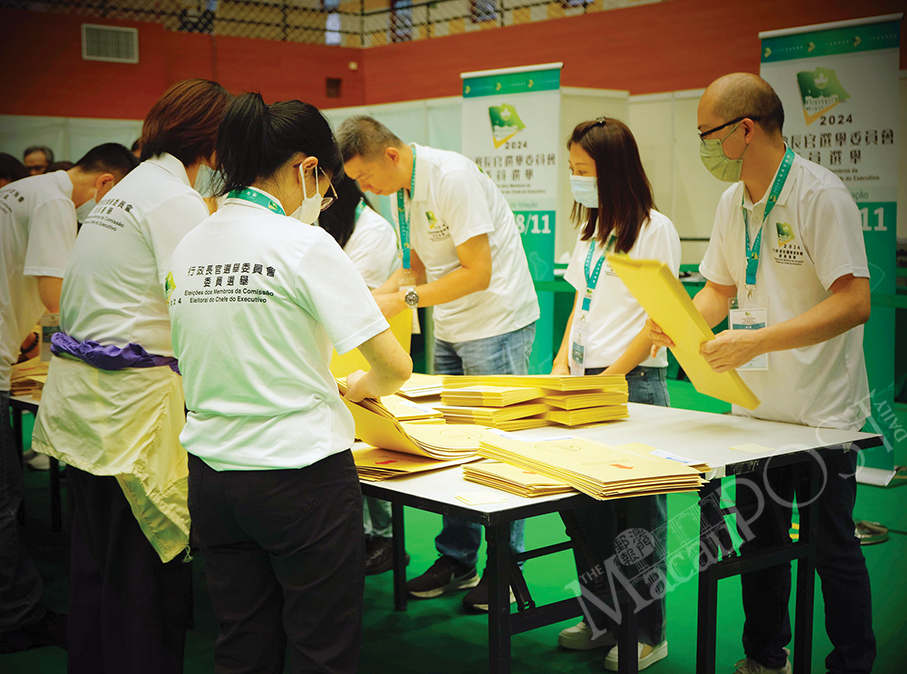
Election staff members count the ballots at the polling station for the Chief Executive Election Committee’s labour segment at the Luso-Chinese Vocational and Technical School in Areia Preta district yesterday evening. – Photos: Maria Cheang Ut Meng
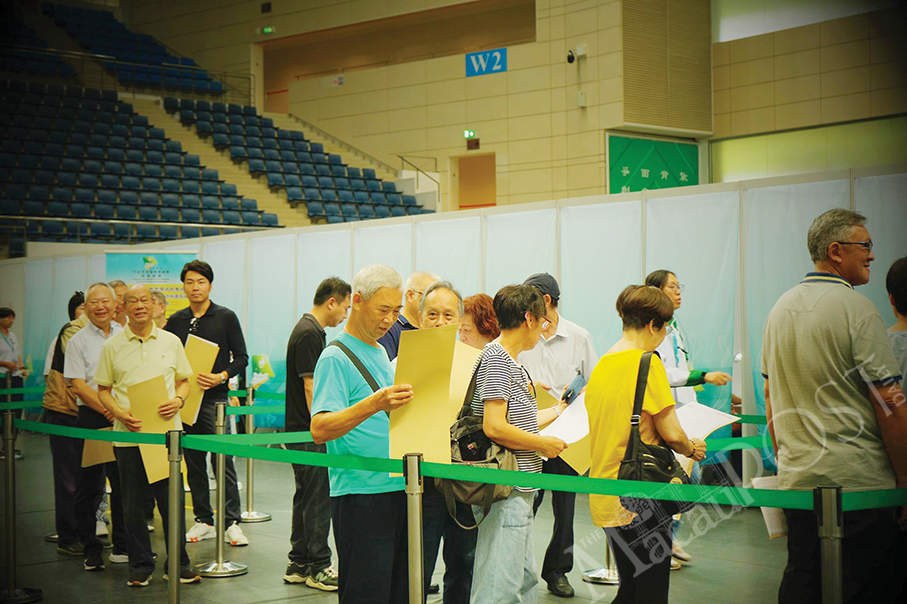
Voters queue to cast their ballots at the polling station for the Chief Executive Election Committee’s industrial, commercial and financial segments at the Macao Polytechnic University’s (MPU) Multi-Sport Pavilion in Zape yesterday morning.
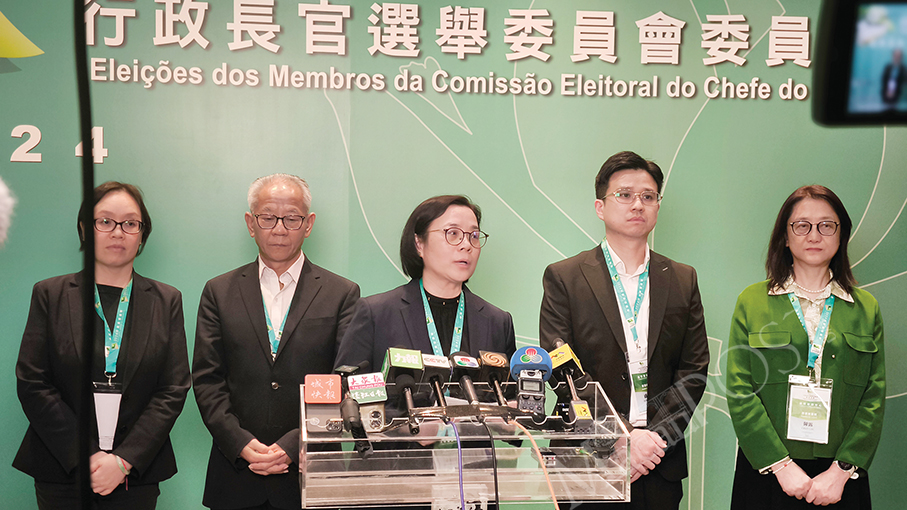
Flanked by her fellow members, Chief Executive Electoral Affairs Commission (CAECE) President Song Man Lei (centre) briefs reporters at the Public Administration Building on Rua do Campo last night. – Photo: Tony Wong






